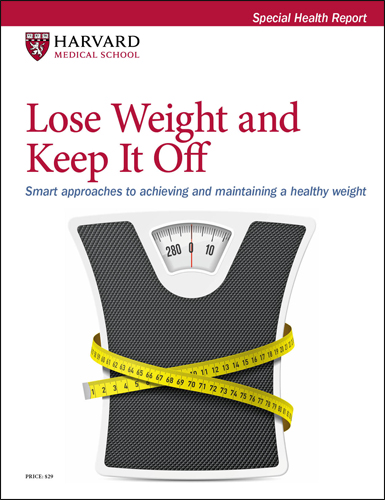Women's Health
Building blocks
Women's protein needs change at different stages of life. Are you getting enough?
- Reviewed by Toni Golen, MD, Editor in Chief, Harvard Women's Health Watch; Editorial Advisory Board Member, Harvard Health Publishing; Contributor

Dietitian Nancy Oliveira has noticed a theme among midlife women who are distressed at having gained weight: they blame menopause. But while hormone shifts may play a small role, Oliveira points out a surprising contributor to these women's weight woes — they often aren't prioritizing protein in their diets.
Since protein is at the heart of muscle growth and maintenance, skimping on this powerhouse nutrient can sabotage women's well-being. Indeed, every bodily function relies on protein, from building muscle and bone to producing blood, digesting food, and fighting off infections.
"Every cell in your body is made of proteins — your organs, muscle tissue, bones, and immune cells," explains Oliveira, manager of the Nutrition and Wellness Service at Harvard-affiliated Brigham and Women's Hospital. "I do think some women are eating mostly carbs and feeling tired. They're not protein-deficient, but could be mildly low in protein."
Weight gain can follow. "We look at menopause as a marker, but it may be that women are losing more muscle mass around perimenopause, and muscle maintains a healthy metabolism," Oliveira says.
Protein primer
Protein is one of the three macronutrients that we need in large amounts. (The others are fat and carbohydrates.) Protein requirements aren't based on sex, but on age, body size, activity level, and overall health.
How much do you need? Get out your calculator. The U.S. government's Recommended Dietary Allowance (RDA) is 0.8 grams per kilogram (2.2 pounds) of body weight, but that amount is a bit low, Harvard experts say. Instead, aim to consume between 1.2 and 2.0 grams of protein per kilogram of body weight.
"The RDA is based on the minimum amount you need to prevent disease," Oliveira says. "That doesn't mean it's all you actually need, because protein needs can go up for various reasons."
For a healthy 150-pound person, that means eating between 80 and 136 grams of protein each day. (See "Look to these foods to meet your protein needs," page 5.) "People do well with round numbers," says Mary Ellen Kelly, a dietitian at Brigham and Women's Hospital. "If someone is 150 pounds, they need at least 90 grams of protein a day, with some variability."
Look to these foods to meet your protein needsAsk people where to find protein, and they're likely to answer "meat." While that's true, it's also rich in poultry, fish, dairy products, and plant-based foods such as grains, nuts, seeds, beans and other legumes, vegetables, and tofu and other soy-based items. Protein molecules are composed of smaller elements called amino acids, which support just about everything our bodies do. We produce some amino acids ourselves, but need to get the rest from our diet. These are called essential amino acids. Animal protein is known as a "complete" protein because it contains all nine essential amino acids; with a few exceptions, plant protein usually doesn't. "I don't think people realize there are actually some plant foods that are considered complete proteins, such as soy foods, hemp seeds, and quinoa," says Nancy Oliveira, manager of the Nutrition and Wellness Service at Brigham and Women's Hospital. "Vegetarians who don't want to eat animal flesh can definitely get enough protein from plants, but you do have to be mindful about it to get those foods more regularly." But animal products aren't the only foods people find polarizing. "The choice to consume dairy is probably the biggest debate," says Mary Ellen Kelly, a dietitian at Brigham and Women's. "But dairy can definitely provide high-quality protein, whether in milk, Greek yogurt, or cheese." If you want to add up your daily protein intake, the Harvard T.H. Chan School of Public Health and USDA offer guidance on protein amounts in a smattering of common choices:
|
When women need more
Despite sex-neutral protein requirements, women may need more for certain reasons men don't. These include pregnancy and breastfeeding, when growing and nourishing another human requires an especially rich supply of the nutrient.
Research is also beginning to illuminate that women are more prone to insulin resistance as years pass — when cells in our muscles, fat, and liver aren't as sensitive to insulin's blood sugar–regulating effects, Kelly says. Because of this, older women should "shift up" protein and fat intake and eat fewer carbohydrates.
"Our body's ability to metabolize carbohydrates begins to change as we age," Kelly says. "The answer is not to drastically reduce calories, but to fuel yourself adequately by eating more protein and unsaturated fat and less heavily processed carbohydrates."
As with men, women who are competitive athletes or trying to build muscle should also opt for higher amounts of protein. And for both sexes, aging alone increases protein needs as we become more vulnerable to diminishing muscle mass and bone-thinning osteoporosis, which strikes four times more older women than men.
"After age 40, we naturally start losing muscle and need to eat more protein to preserve that muscle," Oliveira says.
Consistent but flexible
Though it's ideal to keep protein intake consistent day to day, it won't hurt if you occasionally end up eating, say, 60 grams one day and 160 grams the next.
"We don't want people to get caught up on eating the exact number of grams of protein on a daily basis," Oliveira says. "That can bring some anxiety."
But try to spread your protein intake throughout the day to keep your body humming. "Aim for 25 to 30 grams of protein at each meal, and at least 10 grams at each snack," Kelly advises.
Most people manage to eat enough protein without stringent measuring, Oliveira notes. "It's absolutely about your overall eating pattern," she says. "Learn what the protein-rich foods are and try to include some at every meal and snack, and then you don't have to worry so much about how much and what size. I do think you'll consume enough if you're mindful about it."
If you don't, your body may protest. Symptoms can include
- muscle loss
- persistent hunger
- fatigue or weakness
- moodiness
- dry, flaky skin
- brittle or damaged nails
- slow wound healing
- frequent or prolonged illness.
"You may be more susceptible to colds and other viruses because your immune system is down," Oliveira says.
Supplement basics
If you're aware your protein intake could use a boost — whether you don't like to cook, have a poor appetite, or eat a fully plant-based diet — it's fine to use protein supplements or powders to fill the gap, Harvard experts say.
Widely available protein shakes, meal-replacement bars, and other commercial products make this an easy option. But don't rely on prepared versions too often, since many are ultra-processed, with a lot of added sugar, salt, and preservatives. "They're also lacking naturally occurring fiber, vitamins, and minerals," Oliveira says.
Want to whip up your own protein shakes? It's wise to know what you're putting in them. Whey- or casein-based protein powders (which are isolated from cow's milk) contain animal-based proteins, while pea, hemp, or rice protein powders are plant-based. And since dietary supplements aren't tightly regulated by the USDA or FDA, Kelly advises verifying that any protein supplements are labeled "NSF-certified for sport," which means they've met certain quality standards.
But aim to get the vast majority of your protein from whole foods. "They're called supplements for a reason — they supplement the diet," Kelly says. And people who get enough protein from their food don't need to take in more through supplements.
"Just use them as needed — a morning protein shake is fine," adds Oliveira. "I find them to be really helpful on days where you can't eat enough protein. They can be a useful tool to add to your diet."
Image: © RealPeopleGroup/Getty Images
About the Author

Maureen Salamon, Executive Editor, Harvard Women's Health Watch
About the Reviewer

Toni Golen, MD, Editor in Chief, Harvard Women's Health Watch; Editorial Advisory Board Member, Harvard Health Publishing; Contributor
Disclaimer:
As a service to our readers, Harvard Health Publishing provides access to our library of archived content. Please note the date of last review or update on all articles.
No content on this site, regardless of date, should ever be used as a substitute for direct medical advice from your doctor or other qualified clinician.
















